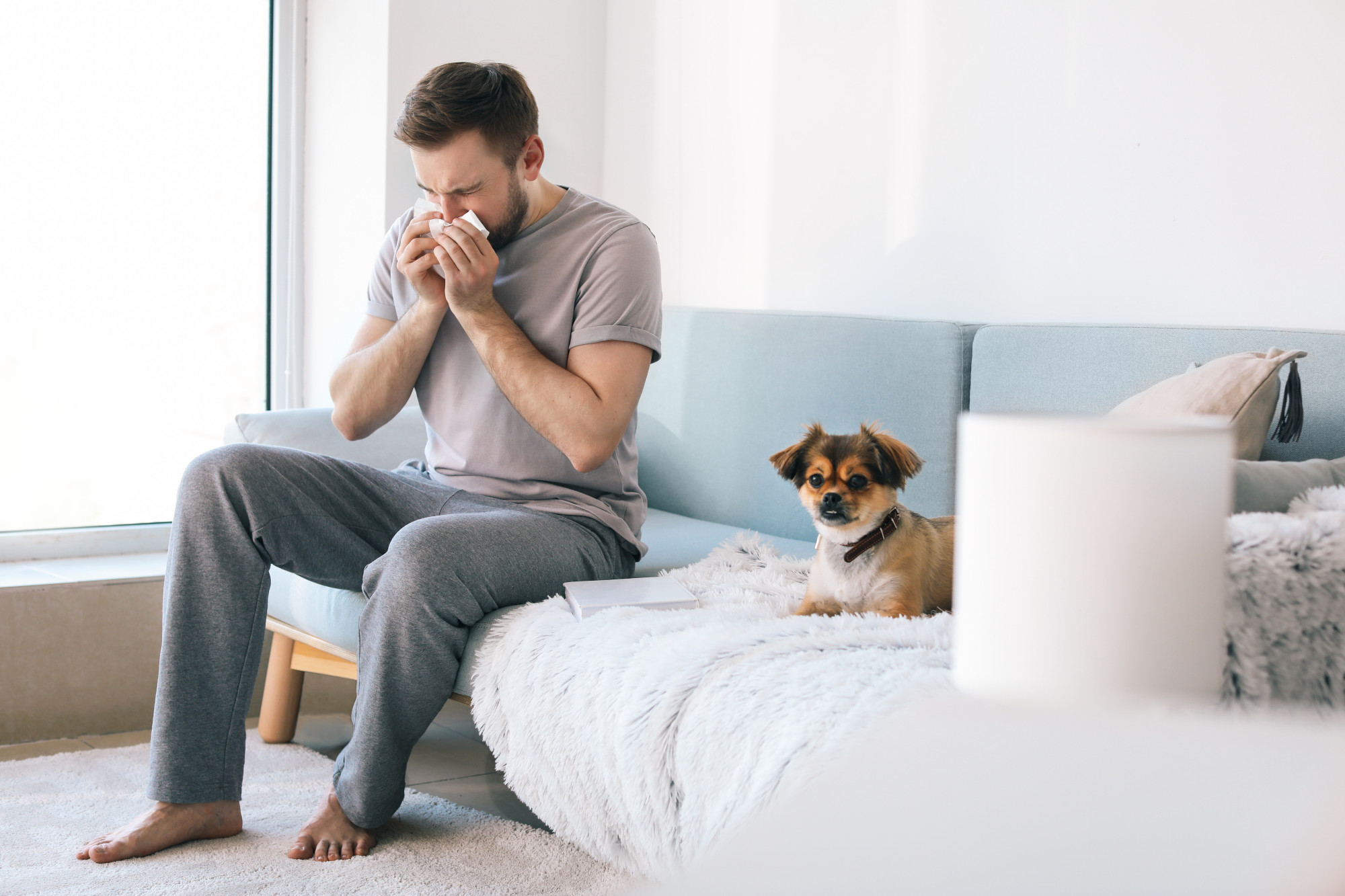
Man suffering from pet allergy at home
Every year, more than 50 million Americans deal with various allergies. Allergies that are quite annoying.
There’s nothing worse than sneezing due to a pungent smell or having a terrible rash after playing with your adorable puppy. Allergens are things like pet dander, pollen, dust, and dust mites that can cause you to have an adverse reaction.
Allergen brings about symptoms from unpleasant to dangerous. Yet, people still get exposed to them. So what is an allergen, and how does it affect you? Read on to find out all the fast facts about allergens.
What Is an Allergen?
An allergen is a protein found in certain foods, dust, pollen, and other substances. When these are introduced into the body, it can cause an immune reaction. The body’s immune system is designed to protect us from harmful foreign substances, but sometimes these allergens can cause our body to overreact.
How Do Allergens Affect You?
When these allergens come into contact with your nose, mouth, skin, or eyes, our body produces antibodies to fight it off. In people with allergies, the body overreacts to the presence of an allergen which causes allergic reactions. Allergic reactions can range from mild (such as a runny nose) to severe (such as anaphylaxis, a life-threatening reaction).
Allergens like dust and pollen could be flying around you unnoticed. If you are looking to avoid airborne allergens, you may consider buying 16x25x1 air filter.
Types of Allergens
Allergens are typically proteins but can also be glycoproteins or oils and lipids. Common allergens include pollen, animal dander, dust mites, mold, and specific food proteins. Some people may also have allergic reactions to insect stings, bites, or medications.
Allergy Symptoms
When your body comes into contact with an allergen, it releases histamine and other chemicals into your bloodstream. This can cause a reaction that ranges from mild to severe.
Allergy symptoms can include itching, swelling and hives. Some people may also experience difficulty in breathing and chest pain. If you’re experiencing any of the symptoms be sure get treated immediately.
Treatments for Allergies
Avoiding exposure to an allergen is the best way to prevent an allergic reaction. For example, if you are allergic to dust, you must avoid dusty environments. If you are allergic to a specific food, you will need to avoid eating that food.
If you can’t avoid or you accidentally made contact with an allergen, you can seek for treatment. There are many treatments for allergies, ranging from over-the-counter medications to allergy shots. In some cases, when the allergic reaction is severe, an EpiPen may be necessary.
Understanding Allergens and Its Effects
If you’re one of the millions of people who suffer from allergies, you know how difficult they can be to manage. But understanding what an allergy is and how it affects your body can help you better control your symptoms. If you’re looking for ways to manage an allergen, talk to your doctor about the right medications and other treatment options that can help.
Did you learn something new from this post? If so, check out our other articles.
Leave a Reply